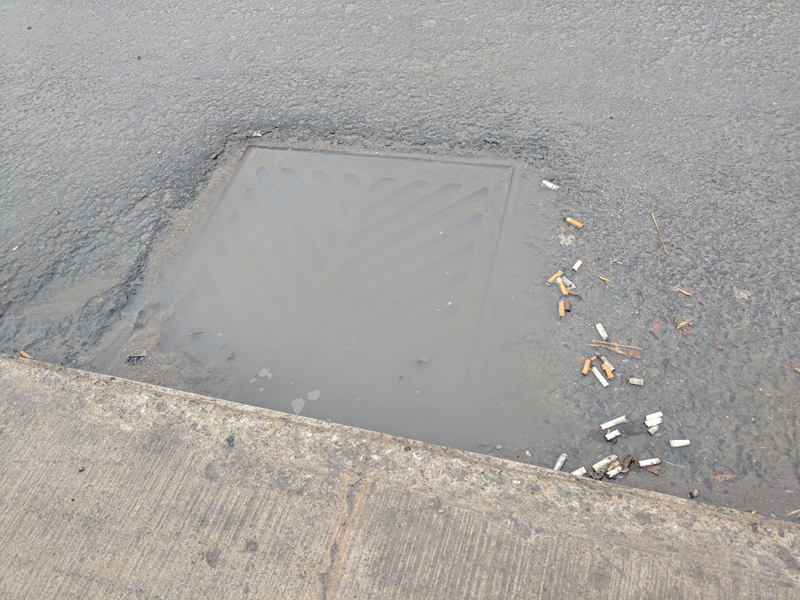By Clara Blakelock, Green Communities Canada
Stormwater runoff is polluting our water unchecked, and threatening watershed health with increased runoff volumes and erosion. At the same time, aging and outdated stormwater infrastructure is facing more frequent and severe weather events, threatening people and property. Cities across Canada need to take action, and need leadership at a national scale to do so.
On May 1-2, I attended the Blue Cities conference in Toronto, hosted by the Canadian Water Network. Among many interesting and informative sessions, was a presentation by an expert panel that convened over the last several months to provide recommendations on addressing contaminants in wastewater. One portion from the report stood out (emphasis mine):
“The management of more diffuse watershed issues does not fall within the dominant purview of any one department, group or sector, and requires coordination of decisions and actions by a variety of stakeholders. Therefore, the adoption of watershed-based policies and practices provides an opportunity to take a more holistic approach to assessing the relative impacts and cost-effectiveness of municipal wastewater treatment options in reducing the overall impact on the environment. A watershed-based approach to management decisions, by default, requires a multi-sectoral effort to capture the impacts and benefits of interventions for both large and small systems and point and non-point sources.”
Source: “Canada’s Challenges and Opportunities to Address Contaminants in Wastewater” National Panel Expert Report, Canadian Water Network, March 2018, Page 40
In other words, we cannot solve water pollution issues by focusing on wastewater treatment plants alone. Non-point source pollution has a major impact on the environment and is virtually unregulated.
This point was echoed by Hazel Breton, Manager of Stormwater Infrastructure with Engineering and Construction Services at the City of Toronto. She stood up in one of the sessions and called for others to support the convening of a similar forum to provide a way forward for stormwater management in Canada.
Christine Zimmer, of Credit Valley Conservation, presented passionately on the need to improve the way we manage stormwater. She noted that while utilities generally provide the same level of service for drinking water and wastewater to all customers, level of service for stormwater is dramatically different depending on the design standards in place in the era in which properties were developed. Many Canadians live in areas without any flood control, much less any treatment for water quality or water balance.
Municipalities and water utilities across the country are looking at green infrastructure as a potential solution, to varying degrees. But addressing urban non-point source pollution is optional, and tends to fall low on the priority list, as other needs take precedence. In the meantime the situation in our urban waterbodies is becoming critical, or is already there.
Cities in the U.S. that have adopted ambitions green infrastructure strategies have done so in order to meet pollutant discharge requirements set by the Environmental Protection Agency. Do we need something similar in Canada to spur action on non-point source pollution? Or is there another way forward?
Share your comments below.
This article appeared in the Umbrella Stormwater Bulletin Issue 67, published on May 8, 2018.

